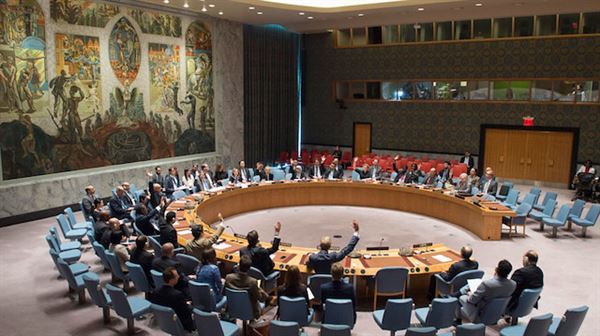The UN Security Council urged all of Libya's warring parties to exercise restraint Monday, expressing "deep concern" at a recent uptick in violence i
The UN Security Council urged all of Libya’s warring parties to exercise restraint Monday, expressing “deep concern” at a recent uptick in violence in the north African nation.
Security Council members urgently called on all sides “to commit to a ceasefire,” and “expressed particular concern regarding the reported breaches of the arms embargo set out by SRSG Salamé in his briefing as well as the growing involvement of mercenaries” in a statement, referring to Ghassan Salame, UN Secretary General Antonio Guterres’ special envoy.
“The Members of the Security Council reiterated their call on all Libyans to work constructively towards the unification of Libya’s military and economic institutions; establishing unified and strengthened national security forces under civilian government authority; and a unified Libyan Central Bank,” the council added.
Libya’s internationally-recognized government said Monday that East Libya-based forces killed at least 16 people, calling the attacks “tantamount to war crimes.”
The deaths came one day after the Tripoli-based government said five children were killed in airstrikes by eastern Libyan forces on the capital.
In April, forces aligned with military commander Khalifa Haftar launched a military campaign to capture Tripoli from the UN-recognized Government of National Accord but has so far failed to make advances beyond the borders of the capital.
According to UN data, over 1,000 people have been killed since the start of the operation and more than 5,000 injured.
Since the ouster of late long-time leader Muammar Gaddafi in 2011, two seats of power have emerged in Libya: one in eastern Libya supported mainly by Egypt and the United Arab Emirates and another in Tripoli, which enjoys UN and international recognition.
